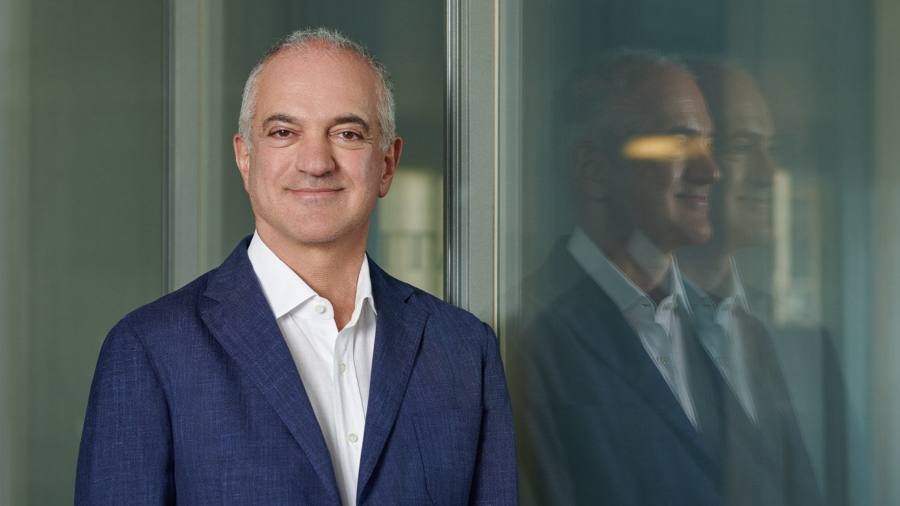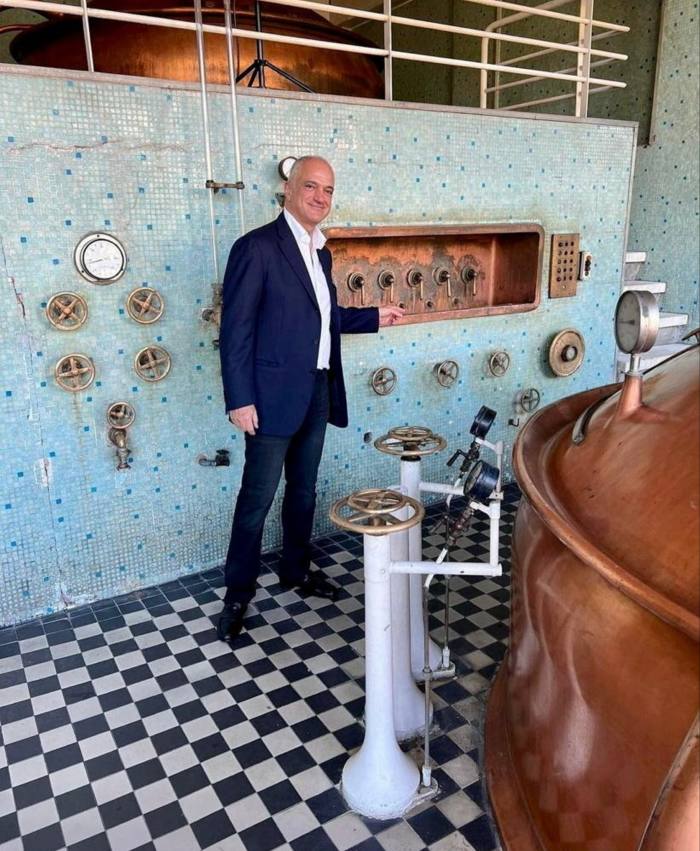
Receive free Retail & Consumer industry updates
We’ll send you a myFT Daily Digest email rounding up the latest Retail & Consumer industry news every morning.
Renowned hedge fund manager Philippe Jabre is enjoying an unexpected second act as a brewer after buying back his family business.
Jabre, who hails from a prominent Lebanese Catholic family, was once one of Europe’s best-known hedge fund traders — not least for a run-in with the UK financial regulator in 2006 for alleged market abuse. Now he is the third generation owner and manager of the Brasserie Almaza that was created by his grandfather, Michel Jabre, 90 years ago.
“My family makes fun of me, because I’ve gotten really into it,” Jabre said in an interview. “But I’ve been enjoying the challenge of doing something completely different.”
Jabre carved out a reputation as a star manager at London-based hedge fund GLG Partners, where he ran as much as $7bn.
But in 2006 he received what was then a record individual fine of £750,000 from the UK watchdog for trading on confidential information from Goldman Sachs about a 2003 convertible bond sale, although the authorities stopped short of calling his actions intentional. He moved to Switzerland from London and set up a hedge fund, Jabre Capital.
Jabre ran money at his eponymous business for just over a decade. At the end of 2018, he announced he would return money to outside investors after suffering heavy losses that year. But after stepping back from professional money management, he admits that he was “bored to tears”.
In mid-2021, Jabre learned that Almaza’s longtime backer Heineken was looking to sell off its controlling stake in the company due to Lebanon’s difficult economic circumstances. The brewery was at risk of shutting down for good, putting nearly 200 jobs at risk. He bought Heineken’s stake for an undisclosed amount with his personal money.
“Almaza has been around since 1933 and survived Lebanon’s many rocky periods, including the civil war. It didn’t sit well with me that it could shut its doors because of this crisis,” he said.
Speaking from Almaza’s works in Beirut, which has occupied the same building since its founding, Jabre said: “This is not Lebanon’s first crisis, and it’s not even its worst.”
He added: “I hope to show others that they shouldn’t give up on Lebanon, that despite the difficulties, we should keep investing in our country.”
Since 2019, Lebanon has been mired in one of the world’s worst economic crises in modern history: more than three-quarters of the population has been plunged into poverty, while its currency has lost more than 95 per cent of its value against the dollar. Most Lebanese have had their funds frozen in its zombie banking system since late 2019, with monthly withdrawals capped and dollar deposits forcibly converted into Lebanese currency at a punishingly low rate.
The country is also trudging through an unprecedented leadership vacuum, without a president for the past nine months and only a caretaker administration governing and stalling on reforms.

Jabre bought the brewery when Lebanon had not yet adapted to its new economic reality and purchasing power was greatly reduced. In 2022, Almaza’s profits stood at around 8 per cent of its sales and were reinvested in the capital-intensive business, Jabre said. He declined to provide sales figures.
Now, almost four years into the crisis, the economy has largely been dollarised but the brewery still cannot get credit lines. Jabre initially had to front the business cash to pay for around half of its imports but he said this will be phased out “because our cash flow is now positive as the business is more stable”.
The brewery’s exports are sometimes delayed because underpaid civil servants are frequently on strike. “It’s not exactly ideal but there’s no alternative right now,” Jabre said.
Still, Jabre has big plans. Almaza produces around 200,000 hectolitres of beer a year. A hectolitre is equivalent to 100 litres. Exports currently make up a quarter of its production, a number he hopes will reach 40 per cent soon.
This summer, Almaza is launching the company’s first new product in a decade, Almaza Unfiltered. Its recent ad campaign caused a furore as it dedicated itself to “all Lebanese enduring unacceptable and unjust daily deceptions”.
Seen more than 1mn times online, it was pilloried by many who accused the company of exploiting Lebanon’s tragedies for commercial gain. Jabre defended it as capturing “the many contradictions of this tiny country”.
His own switch from hedge fund manager to brewer shows, he says, that “life doesn’t stop. It just continues under a different hat.”